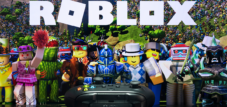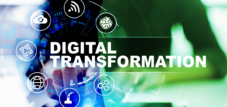AI Gamification in Digitalization: Measurable Success through Playful Elements
Language selection 📢
Published on: October 14, 2025 / Updated on: October 14, 2025 – Author: Konrad Wolfenstein

AI Gamification in Digitalization: Measurable Success Through Playful Elements – Image: Xpert.Digital
How Plaros turns your website into interactive games – more engagement in minutes
Longer dwell time, more sales – Plug-and-play gamification: Plaros, personalization and measurable ROI
Plaros transforms static website content into interactive experiences: The AI-powered gamification platform automatically analyzes text, product pages, and videos and generates context-relevant mini-games such as word searches, memory games, or trivia. The resulting "Game Zone" can be integrated with a single line of code—without any programming effort or design resources.
For content publishers, shops, and YouTube channels, this means fewer bounces, longer dwell times, and new monetization sources. Relevant games increase genuine engagement because they address content (e.g., travel terms on an Italy blog) instead of offering generic distractions. At the same time, the game-based interactions provide valuable user data for personalized campaigns and better conversion optimization. Companies report significantly higher conversion rates, stronger customer loyalty, and measurable ROI—and can use Plaros almost immediately.
In short, Plaros is a plug-and-play solution for anyone who wants to leverage existing content to increase user engagement, revenue, and insights—without additional development effort.
Core functionality of Plaros
Plaros uses artificial intelligence to analyze website content and create customized games. The platform automatically reads articles, product descriptions, and other content and generates contextually relevant games such as word searches, memory games, and trivia questions.
The implementation process is incredibly simple: Users enter their website URL, the AI analyzes the content, and creates a "Game Zone" that integrates into the existing website with just one line of code. No programming or design work is required.
Areas of application and target groups
For content websites and bloggers
Plaros increases advertising revenue by increasing user retention. Instead of offering generic puzzles, the AI creates games from the user's own content—for example, a travel blog about Italy receives word games with terms like "Rome," "Colosseum," and "pasta."
For e-commerce shops
The platform reduces bounce rates, increases conversions, and encourages repeat purchases through gamified shopping experiences. Interactive elements keep customers on the site longer and encourage them to purchase.
For YouTube channels
Plaros automatically generates mini-games and digital collectibles from videos, increasing watch time and creating new monetization streams—from collectibles to fan challenges to interactive sponsorship opportunities.
Why Plaros makes sense
Proven ROI successes
Gamification has been proven to deliver strong returns – companies report 50% productivity increases and up to seven times higher profit margins. Customer loyalty improves by 48%, while gamified strategies can increase conversion rates by up to 50%.
Content-relevant personalization
Unlike generic gamification tools, Plaros creates games that authentically fit the brand and content, leading to genuine engagement rather than superficial distraction.
Practical implementation
The plug-and-play solution requires no technical knowledge and integrates seamlessly with existing websites. Companies can immediately benefit from engagement increases without tying up internal development resources.
Data collection and insights
Gamified experiences encourage users to share detailed information about their preferences and behavior. This valuable data can be used for personalized marketing campaigns.
The platform is particularly valuable for companies looking to monetize their content strategy, increase user interaction, or develop new engagement-based business models. At a time when attention has become the scarcest resource, Plaros offers an intelligent solution for transforming static content into interactive experiences that improve both users and business results.
🤖🚀 PLAROS Gamification AI Platform: Create interactive, playful elements from existing content

Innovative AI-supported platform for gamification elements to create interactive, playful elements from existing content - Image: Xpert.Digital
💹 Innovative AI-powered platform for gamification elements to create interactive, playful elements from existing content.
➡️ Core functions of the platform
Plaros' AI automatically analyzes existing website content and understands its context to generate contextual games and challenges. Instead of using generic quiz templates, the platform creates customized interactive elements tailored directly to the content in question.
➡️ Examples of application
- Transforming an “About Us” page into an interactive timeline quiz about company milestones
- Transforming product catalogs into “Product Discovery Quizzes” for personalized recommendations
- Creating spin-to-win discount games for e-commerce stores
➡️ Benefits for companies
- Increased user engagement metrics
- Longer dwell times on websites
- Improved lead generation through interactive forms
- Stronger customer loyalty through personalized experiences
- Measurable increase in conversion rates
More about it here:
From KFC to Duolingo: How simple games are making sales explode
### The secret of Starbucks & Nike: How playful tricks make you addicted ### 7x profit through playfulness? This strategy is changing everything ### Dopamine for work: Why 90% of employees feel more productive ### The code for motivation: How companies are redefining performance with playful elements ###
More than just points: How SAP and Microsoft save billions with gamification
What do a language-learning app with 300 million users, a global coffee company whose loyalty program accounts for 41% of its revenue, and a software giant like SAP have in common? They all use one of the most effective strategies of digital transformation: gamification. Gamification is about much more than just colorful badges and leaderboards. It's the targeted integration of playful elements like rewards, competitions, and progress indicators into business processes to measurably guide and motivate human behavior.
The basis of this success is purely neurobiological: When we are rewarded for an action, our brain releases dopamine – a feel-good hormone that drives us to repeat that action. Companies that cleverly harness this mechanism achieve breathtaking results. Studies show they achieve up to seven times higher profit margins, while 90% of employees demonstrably feel more productive as a result of gamified processes. From a 712% sales increase at a hotel company to the revolutionization of knowledge sharing at SAP to exploding sales figures at KFC – the evidence is overwhelming. This article delves deep into the world of gamification, illuminating its psychological drivers and using impressive case studies to demonstrate how companies across industries are using it to take productivity, customer loyalty, and profitability to entirely new levels.
Fundamentals and strategic approach
Integrating gamification into business processes and digital applications has proven to be a highly effective strategy for increasing user engagement and business performance. This approach, known as gamification, leverages psychological mechanisms such as reward, competition, and progress measurement to guide human behavior in desired directions.
The effectiveness of gamification is based on neurobiological principles. When users receive rewards through gamified systems, the neurotransmitter dopamine is released, triggering feelings of satisfaction and motivation. This neurochemical process leads users to want to repeat the rewarding activities, resulting in lasting behavior change.
Companies that successfully implement gamification report seven times higher profit margins compared to competitors using traditional approaches. These impressive results stem from gamification's ability to sustainably increase both employee productivity and customer engagement.
Increased productivity in employee motivation
The use of gamification in human resource development has shown remarkable success. Studies show that 90% of employees feel more productive through gamified work processes. This improvement is reflected in various measurable metrics.
The Octalysis Group case study of a hotel company impressively demonstrates the potential: Human-centered design approaches that integrated playful elements resulted in a 712% increase in sales. A major airline achieved a 175% performance improvement through a well-thought-out reward system, while a sales platform for employees recorded 28.5% more revenue and 59% higher key performance indicators.
Deutsche Bank Brazil significantly exceeded its original target of a 5% increase in annual sales, achieving a remarkable 49% increase within six months, generating additional revenue of $1 billion. These successes underscore the transformative power of gamified systems in corporate management.
Successful digital projects with measurable results
SAP Community Network: Revolutionizing knowledge sharing
SAP transformed its already established reputation system into a gamified knowledge exchange, leading to exceptional results. The platform saw a 400% increase in usage and a 96% increase in community feedback. By integrating point systems, badges, and missions, a vibrant learning ecosystem emerged.
The system rewarded participants for knowledge sharing and quality contributions, creating a self-sustaining community of experts. The gamification elements led to a 30% increase in community engagement, a 400% increase in feedback collection, and significant reductions in support costs. Particularly noteworthy is that SCN scores are now considered in recruitment processes, underscoring the real appreciation of gamified services.
Microsoft Language Quality Game: Global Quality Assurance
Microsoft developed the Language Quality Game to improve translation quality for Windows 7 in 36 languages. Over 4,500 employees worldwide reviewed more than 500,000 screens and discovered over 7,000 defects. The game leveraged the company's internal diversity by inviting native speakers to participate.
The results were exceptional: 100% speech participation was achieved, with an average of 71% of dialogues rated as correct. Participant numbers varied from 615 players for one language to 10 for others, with native Korean speakers performing over 82,000 screen reviews. The system integrated quality control mechanisms through known defects to assess the reliability of participant responses.
Deloitte Leadership Academy: Revolutionized leadership development
Deloitte implemented gamification in its leadership development program and achieved impressive results. Course completion rates increased by 50%, while user return rates increased by 47%. Weekly retention rates increased by 36%, demonstrating the lasting impact of the gamified approach.
The program used elements such as badges, leaderboards, and status symbols to motivate participants. By addressing the psychological needs for development, achievement, and social recognition, Deloitte created a more engaging learning experience for future leaders. Knowledge retention improved by 44%, productivity increased by 47%, and training costs decreased by 38%.
Duolingo: Language learning through playful innovation
Duolingo revolutionized language learning through consistent gamification, reaching over 300 million users. The system uses experience points, levels, streak systems, and social competition elements to encourage sustained engagement.
After introducing the badge system, in-app purchases increased by 13%, while the number of added friends increased by an impressive 116%. These figures demonstrate the direct correlation between gamified elements and business results. Studies show that 80% of language learners prefer Duolingo for its gamification elements, while 6 million users have streaks of 7 days or more.
Personalization plays a crucial role: Duolingo discovered that different notification types have different levels of effectiveness depending on the language being learned. Chinese learners respond particularly well to time-based reminders, while English learners require different motivational approaches.
Customer loyalty and increased sales through gamification
Starbucks Rewards: The golden example of customer loyalty
Starbucks Rewards has established itself as one of the most successful customer loyalty programs, with over 75 million members globally and 32 million in the US alone. The program generates an impressive 41% of total US revenue and exhibits an annual growth rate of 16%.
The program's effectiveness is reflected in concrete behavioral changes: Members visit Starbucks stores 5.6 times more frequently daily than non-members. 21% of customers return within three days, while 10% return the next day. 71% of app users visit a store at least once a week, underscoring the strong loyalty effect.
The program achieves a remarkable customer retention rate of 44%, significantly above the industry average of 25%. The average Customer Satisfaction Index is 78 points, reflecting the high level of satisfaction with the gamified customer experience.
Nike Run Club: Fitness through community and competition
Nike Run Club leverages comprehensive gamification strategies to increase user retention and engagement. The app integrates progress tracking, badges, leaderboards, and guided training programs into a cohesive experience.
With over 100 million users, Nike Run Club demonstrates the scalability of gamified approaches. The system encourages more frequent use through challenges, streaks, and badges, motivating users to maintain their progress. The resulting community building strengthens user loyalty and leads to higher long-term retention rates.
Successful sales and marketing gamification
KFC Japan: Explosive sales increase thanks to Shrimp Attack
KFC Japan developed the game "Shrimp Attack" to promote a new shrimp product line and achieved exceptional results. Inspired by Fruit Ninja, the game reached 854,454 participants with a 91% engagement rate and an average of 4.4 replays per user.
The success was so overwhelming that KFC had to end the campaign early because the promoted products sold out faster than expected. 22% of players redeemed their winning vouchers in stores, resulting in a spectacular 106% increase in store sales compared to the previous year. These figures demonstrate the direct translation of gaming engagement into real business results.
Domino's Pizza Hero: Creativity boosts sales
Domino's developed the Pizza Hero app, which allowed customers to create and order virtual pizzas. This innovative approach resulted in a 30% increase in sales revenue and established new standards for interactive marketing in the restaurant industry.
The app took full advantage of tablet interactivity, creating a unique ordering experience that went beyond traditional apps. Digital platforms already accounted for 30% of Domino's US sales, with the company reaching the $1 billion online sales milestone in April 2012.
Moosejaw: Exceptional Return on Investment
The clothing company Moosejaw implemented an innovative gamified system that generated 76% of sales revenue from gamified activities. The campaign generated 240,000 social media impressions and achieved a remarkable 560% return on investment.
This success story demonstrates how well-thought-out gamification strategies not only increase engagement but also deliver directly measurable business results. The high ROI rate underscores the cost-effectiveness of gamified marketing approaches compared to traditional advertising methods.
Operational efficiency and cost savings
Process optimization through gamification
Gamification contributes significantly to operational efficiency by automating time-consuming processes and reducing sources of error. Employees save up to 15% of their time spent manually tracking performance because gamified systems provide real-time data and automated assessments.
Finance departments benefit particularly strongly: Processing incentive systems becomes 90% more efficient through automation and rule-based tracking. Traditionally manual and error-prone processes are eliminated through gamified platforms, resulting in 100% error reduction and live updates.
Data analysis and decision making
MIS teams can reduce their analytics efforts by 95% through real-time data widgets and automated insights. Gamified systems provide continuous access to sales and operational data, accelerating and improving decision-making.
The integration of AI-based predictions optimizes incentive systems by analyzing performance trends, product sales mixes, and earning patterns. These data-driven approaches lead to smarter incentive designs and improved efficiency.
Technological implementation and scaling
Platform integration and user-friendliness
Successful gamification systems are characterized by seamless integration into existing workflows. Modern platforms offer real-time access to goals, performance assessments, leaderboards, and incentive systems, creating seamless user experiences.
For team leaders, gamified systems enable personalized incentive schemes, performance tracking, and direct engagement with team members. Real-time insights allow for the identification of top performers and the optimization of motivation strategies based on actionable data.
Scalability and measurability
Companies using Compass gamification platforms report a 40% acceleration of their business metrics and a 90% reduction in operational inefficiencies. These figures demonstrate the transformative impact of well-thought-out gamification implementations on sustainable business development.
Scalability is ensured by modular system architectures that integrate with multiple data sources and enable dynamic configuration of real-time widgets, goal-setting parameters, and incentive structures.
Psychological foundations and sustainability
Intrinsic motivation and behavior change
Gamification leverages the basic principles of operant conditioning through immediate feedback and rewards. These psychological mechanisms lead to lasting behavioral changes that go beyond superficial engagement.
Activation of the brain's reward system through dopamine release creates natural motivational loops. Users develop intrinsic motivation to continue rewarding activities, leading to increased long-term engagement.
Social dynamics and community building
Successful gamification integrates both competitive and collaborative elements. Group challenges, shared leaderboards, and collaborative missions promote teamwork and create a sense of community among users.
These social aspects significantly strengthen the bonding effect, as users not only pursue individual goals but also become part of a larger community. The resulting social connections increase the likelihood of sustained engagement over the long term.
Future developments and market potential
Market development and investment trends
The global gamification market is expected to grow from $9.1 billion in 2020 to $30.7 billion by 2025, representing a compound annual growth rate of 27.4%. This explosive growth reflects the increasing recognition of gamification as a business-critical strategy.
Companies across various industries are recognizing the potential and integrating gamification mechanisms into their core strategies to increase productivity, boost engagement, and improve customer loyalty. Investments are flowing into both technology development and training for specialists.
Integration of AI and machine learning
Combining gamification with artificial intelligence and machine learning opens up new possibilities for performance evaluation and staff development. These technologies enable the identification of long-term trends and the optimization of team processes.
AI-powered systems can predict optimal incentive structures and create personalized gamification experiences that adapt to individual user profiles. This development leads to even more effective and targeted gamified solutions.
The documented success stories of companies like SAP, Microsoft, Deloitte, Starbucks, Nike, KFC, and many others clearly demonstrate the transformative potential of gamification. With proven productivity gains of up to 50%, sevenfold increases in profit margins, and 48% improvements in customer loyalty, gamification is establishing itself as an essential component of modern business strategies. Continuous technological development and growing market acceptance promise further innovative applications in the digital transformation of companies.
Advice - planning - implementation
I would be happy to serve as your personal advisor.
contact me under Wolfenstein ∂ Xpert.digital
call me under +49 89 674 804 (Munich)


















